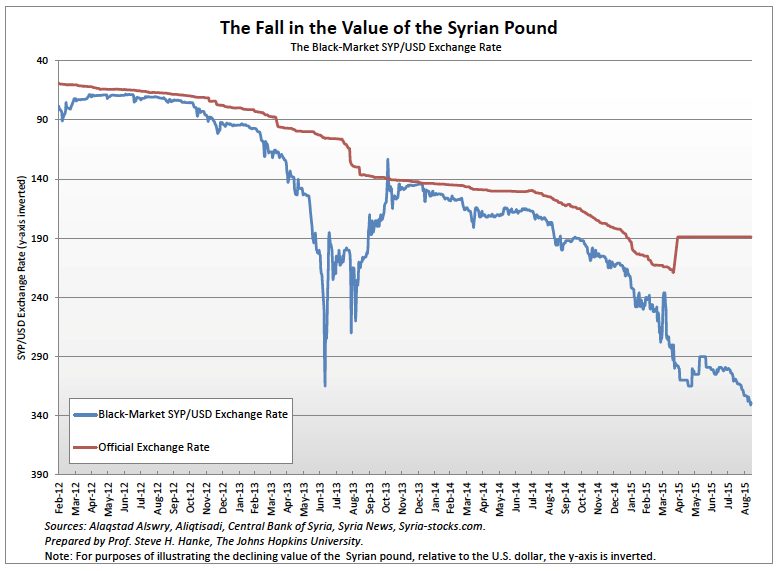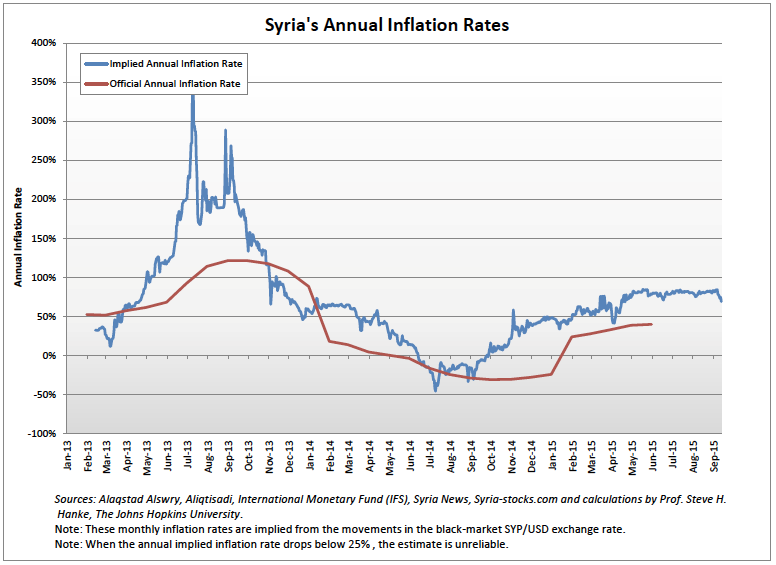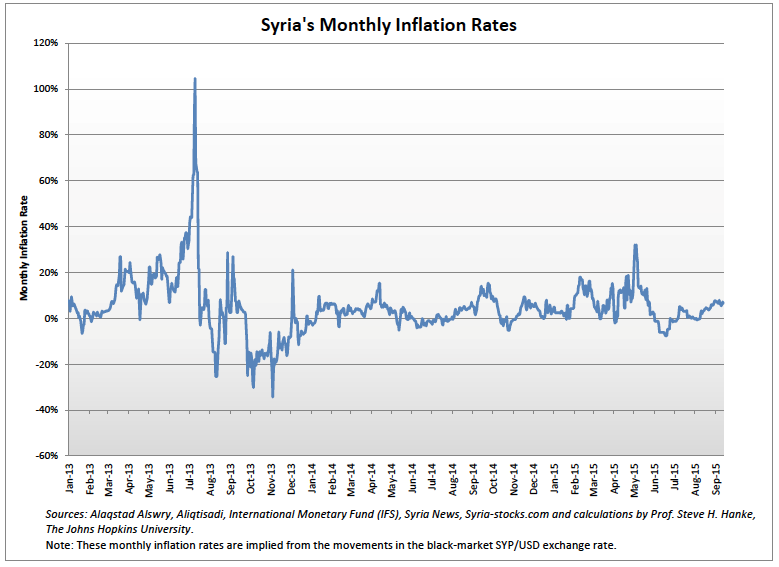Syria's Economy Not Shaken by ISIS
Economics / Syria Sep 17, 2015 - 11:43 AM GMTBy: Steve_H_Hanke
 The fog of war has removed any sense of certainty regarding developments on the Syrian battlefield. That said, we know that ISIS has captured several towns, and that waves of Syrian refugees are disembarking upon Europe's shores. But, the picture remains chaotic and hazy.
The fog of war has removed any sense of certainty regarding developments on the Syrian battlefield. That said, we know that ISIS has captured several towns, and that waves of Syrian refugees are disembarking upon Europe's shores. But, the picture remains chaotic and hazy.
However, there is one objective indicator of reality in Syria. It is the Syrian pound's black-market (read: free-market) exchange rate. The Johns Hopkins-Cato Institute Troubled Currencies Project (TCP) tracks and reports this important indicator on a daily basis. With the exception of a plunge in June 2013, the Syrian pound has witnessed an orderly, not chaotic, deterioration.

From Syria's black-market exchange, standard economic theory and reliable empirical techniques allow us to produce accurate inflation estimates. Indeed, with the free market exchange-rate data (usually black-market data) reported by the TCP, the inflation rate can be calculated. The principle of purchasing power parity (PPP), which links changes in exchange rates and changes in prices, allows for a reliable inflation estimate, when inflation rates are elevated. To calculate the inflation rate in Syria, all that is required is a rather straightforward application of a standard, time-tested economic theory (read:PPP).
Despite the chaotic battlefield situation, the Syrian economy is, well, less chaotic. It is experiencing a slow and uneventful deterioration. That's clear. As the charts depict below, both annual and monthly implied inflation rates have been rather stable, aside from the June 2013 hyperinflation scare.


With Russia's recent ramp-up in Syria, it will be worth paying particular attention to the SYD/USD black-market exchange rate. If the pound stabilizes, or strengthens, we will know that the presence of Russia, from the al-Assad government's point of view, is paying dividends.
By Steve H. Hanke
www.cato.org/people/hanke.html
Twitter: @Steve_Hanke
Steve H. Hanke is a Professor of Applied Economics and Co-Director of the Institute for Applied Economics, Global Health, and the Study of Business Enterprise at The Johns Hopkins University in Baltimore. Prof. Hanke is also a Senior Fellow at the Cato Institute in Washington, D.C.; a Distinguished Professor at the Universitas Pelita Harapan in Jakarta, Indonesia; a Senior Advisor at the Renmin University of China’s International Monetary Research Institute in Beijing; a Special Counselor to the Center for Financial Stability in New York; a member of the National Bank of Kuwait’s International Advisory Board (chaired by Sir John Major); a member of the Financial Advisory Council of the United Arab Emirates; and a contributing editor at Globe Asia Magazine.
Copyright © 2015 Steve H. Hanke - All Rights Reserved
Disclaimer: The above is a matter of opinion provided for general information purposes only and is not intended as investment advice. Information and analysis above are derived from sources and utilising methods believed to be reliable, but we cannot accept responsibility for any losses you may incur as a result of this analysis. Individuals should consult with their personal financial advisors.
Steve H. Hanke Archive |
© 2005-2022 http://www.MarketOracle.co.uk - The Market Oracle is a FREE Daily Financial Markets Analysis & Forecasting online publication.



